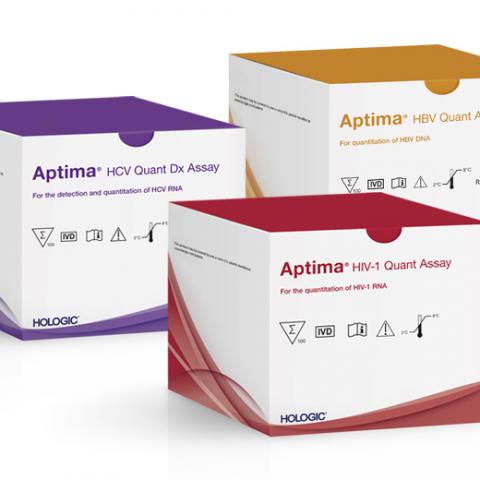Hologic, Inc. has announced the launch of new HIV diagnosis tools in Uganda and other countries in Africa. The Aptima® HIV-1 Quant Dx assay will provide new approaches to make it quicker and easier for laboratories to diagnose and monitor HIV infections in the country.
The assay – the technical term for a laboratory test – has received two new CE marks. First, certification to use for early infant diagnosis to qualitatively detect HIV-1 RNA as an aid in diagnosing HIV-1 infected infants under 18 months. And second, testing of dried blood spots to monitor viral load and disease progression in HIV-1 infected individuals.
The Aptima HIV-1 Quant Dx assay is the only test to have both these CE marks. In line with the 95-95-95 goals from UNAIDS, this high performance, accessible and flexible test will help governments and NGOs scale up the fight against a virus that continues to infect over 3,000 people daily in sub-Saharan Africa with 1.7 million children and adolescents (0-19 years) already infected.
In Uganda there are estimated to be over 95,000 children under the age of 14 living with HIV and an estimated 7,600 children were newly infected with HIV in 2017. Early infant diagnosis is essential to improve prevention and treatment interventions, as peak mortality occurs between six weeks to four months of age for children who have acquired HIV infection.
High-performance and accurate testing
The Aptima HIV-1 Quant Dx assay is a highly sensitive test which can use plasma, serum or dried blood spots to get an accurate HIV diagnosis on the fully automated PantherTM system. Thanks to its flexibility and accuracy, this integrated diagnosis solution will help overcome multiple challenges faced by local laboratories. The new DBS sample solution will improve the collection, preservation and transportation of samples from testing centres to laboratories.
The Aptima HIV-1 Quant Dx assay was awarded World Health Organization (WHO) prequalification for in vitro diagnostics using plasma samples on December 21, 2017, which allows global health organizations to consider the Aptima HIV-1 Quant Dx assay for public sector procurement in resource-limited countries.
A less costly viral diagnostic solution for governments, NGOs and laboratories
Following the recent Hologic Global Access Initiative, launched in partnership with the Clinton Health Alliance Initiative (CHAI) and MedAccess the HIV-1 Quant Dx assay will be available at a price of $12, with no upfront cost or capital expenditure in nearly 50 nations including Kenya, Malawi, Tanzania, Uganda, Zambia and Zimbabwe.
“We designed the Aptima HIV-1 Quant Dx assay and the Panther system keeping in mind the specific needs of viral diagnosis laboratories in Africa, ” said João Malagueira, Hologic’s vice president, Europe South and Indirect Markets.
Through this integrated testing solution, “we want to partner with local authorities and international organizations to help the fight against HIV in east and southern Africa. With 25 million people infected with HIV in sub-Saharan Africa alone, there continues to be an urgent need for accessible and reliable testing, which is crucial for managing care and reducing the spread of the infectious disease.”
The PantherTM system is designed to be modular and scalable, accommodating the needs of large labs and smaller ones alike, in urban and rural areas, with minimum infrastructure requirements. It offers the highest throughput per square meter of any comparable molecular diagnostic instrument – up to 320 results in 8 hours in less than 1m2 of space – which can make a big difference in smaller rural labs.
The next step in the fight against HIV
East and Southern Africa is home to the largest number of HIV-infected people in the world, with 19.6 million people living with the virus in 2017. Despite this, the region continues to make significant gains towards meeting the 95-95-95 goals. Between 2010 and 2016, new HIV infections among children (aged 0-14) declined by 56 per cent, while new infections among adults declined by 29 per cent.
Experts say access to accurate testing is the first step in ending the spread of HIV. While more people are becoming aware of their HIV status, several factors continue to impede this progress. They include inadequate testing infrastructure and lack of access to laboratories are among others. “Use of dried blood spots for testing ensures that patients in areas with no testing facility can still access the services as the samples can be easily transported,” they say.





